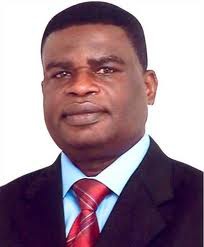 Dr Kofi Mbiah
Dr Kofi Mbiah
Transit volumes through the ports of Ghana has since 2009 reduced by 40 per cent from more than 850,000 tonnes in 2006 to 520, 000 tonnes in 2014.
This is due to many checkpoints mounted by the Police and Customs at Ghana’s transit corridors to neighbouring countries.
These checkpoints have been identified as part of the major challenges facing trade facilitation and robbing the country of its economic resources.
The Chief Executive Officer (CEO) of the Ghana Shippers Authority (GSA), Dr Kofi Mbiah, in a speech read on his behalf, announced this at Paga in the Kassena –Nankana West District of the Upper East Region, at a stakeholders’ forum on Trade Facilitation and Road Governance.
The forum was organised by the GSA in collaboration with the Ghana Ports and Harbours Authority (GPHA), and the United States Agency for International Development (USAID) Borderless Alliance.
It was aimed at updating and sensitising the players in the trade and transport industries on the current development on the Ghana’s Northbound Transit corridor.
It was also to raise awareness on the bottlenecks in the corridor and help eliminate them in efforts to increase the overall transport competitiveness for the benefit of shippers and transporters.
Dr Mbiah stated that a road verification trip conducted by the GPHA and the Borderless Alliance this year revealed that there were more than 45 checkpoints manned by the Police and Customs along Ghana’s Northbound Transit corridor.
“These checkpoints have become a source of delays, harassment and cost to our transporters,” he said.
“These and other challenges have contributed to the decline in the volumes of transit cargo through our sea points and thereby depriving the port, transporters, and the nation’s economy of vital resources for socio-economic development,” he noted.”
He stated that the Paga-Dakola Border as a very important link to Ghana’s International trade with Burkina Faso, Mali, and Niger and also served as a transit point from the Tema Port to those landlocked countries and vice-versa and, therefore, when harnessed well could rake in huge revenue for the country’s development.
While acknowledging the efforts of the Police and the Customs officers for providing the needed security and the safe environment for the transit business, the CEO urged them to exhibit higher professionalism in the discharge of their duties, especially by avoiding undue harassment and extortions.
The Upper East Regional Police Commander, Deputy Commissioner of Police, Simon Afeku, gave the assurance that the Police would weed out any officer who would be caught extorting monies from transporters.
He also urged transporters to desist from offering bribes to the officers.
Mr James Zuugah Tiigah, the Upper East Regional Minister, in a speech read on his behalf, pledged the Government’s commitment in tackling the challenges confronting the sector.
He said the Government was aware of the role the transport industry played in the development of the economy and would work to ensure that Ghana abided by the ECOWAS protocol of free movement of goods and services in the Sub region.
The stakeholders, made up of officials from the Ghana security agencies, the GSA, GPHA, Borderless Alliance Ghana, transporters, and their counterparts from Burkina Faso, Mali, and Niger took turns to analyse transit trade procedures and proposed measures to reduce cost and delays along the corridor to enhance competitiveness.